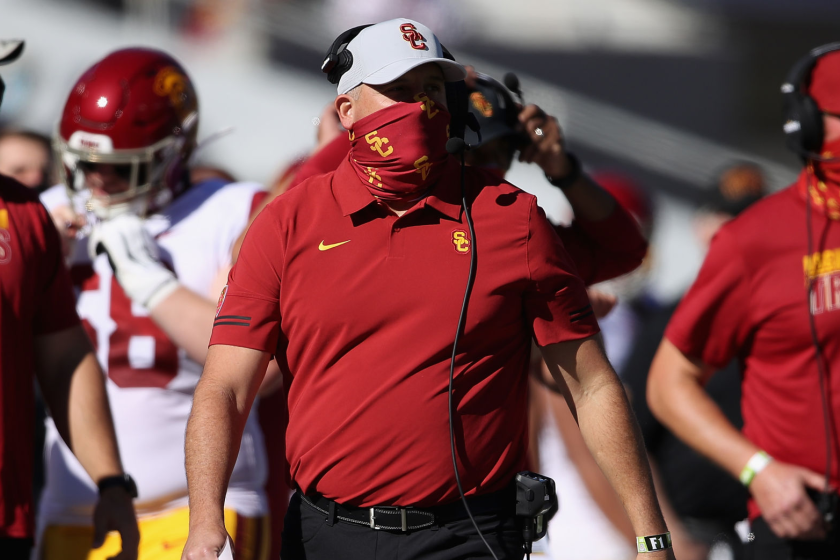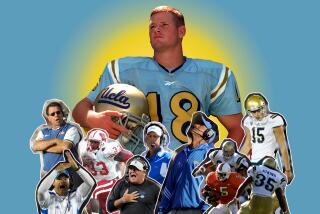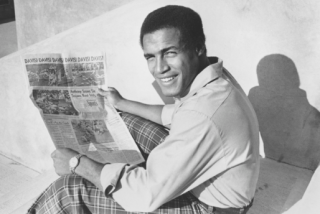Marv Marinovich, captain of USC’s 1962 national title team, dies at 81
Marv Marinovich, a captain of USC’s 1962 national championship team whose turn as a domineering football father became a cautionary tale, has died. He was 81.
He died of natural causes in Mission Viejo on Thursday. His family announced in 2018 that he was battling Alzheimer’s disease.
Long before he groomed his son from birth to be the perfect quarterback, Marv was a Trojan luminary as a two-way lineman known for his brute toughness. Under legendary Trojans coach John McKay, he captained the 1962 team to an 11-0 record and USC’s first national championship in more than two decades.
Marinovich played briefly for the Oakland Raiders, the same franchise his son, Todd, would later quarterback, before retiring to serve as strength and conditioning coach, one of the first named to that position in the league’s history. He parlayed that experience into opening his own sports performance center in Orange County, where he trained professional athletes in the same methods from the former Eastern bloc he’d so notoriously used to train his own son.
Both of his sons, Todd and Mikhail, would go on to have careers in football. But it was his rigorous — and often, ruthless — work with Todd, his oldest, that earned Marv the distinction as an infamous football father.
One player left quarantine and returned Wednesday after being exposed to COVID-19 last week. The Trojans expect to get others back ahead of Sunday’s game.
The stories of Todd and Marv Marinovich are canon in the history of sports parentage. Marv had Todd teething on frozen kidney beans at a month old and lifting medicine balls or balancing on balance beams before he was old enough to walk. Marv consulted experts in biochemistry and psychology to help mold Todd into the ideal physical specimen, “America’s first test-tube athlete,” as Sports Illustrated coined him.
Todd’s rise led him to USC, where he starred as a quarterback, and then to the Los Angeles Raiders as a first-round pick. But his subsequent plummet into drug addiction cut a once-promising career short, turning his and his father’s story into a cautionary tale.
Marv continued training athletes in Orange County, opening his fitness center in 1997.
More to Read
Go beyond the scoreboard
Get the latest on L.A.'s teams in the daily Sports Report newsletter.
You may occasionally receive promotional content from the Los Angeles Times.








